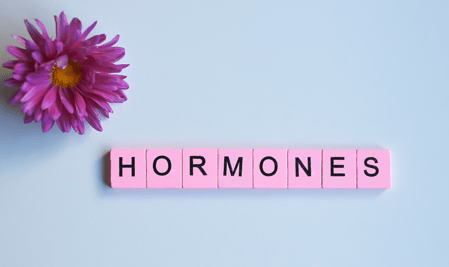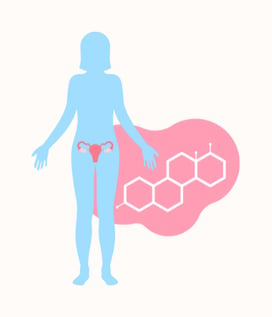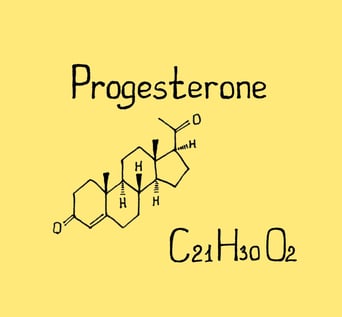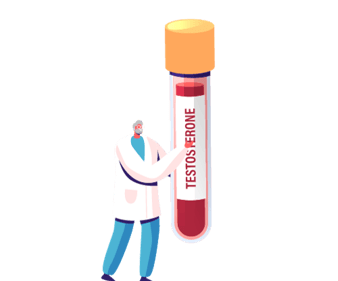The Surprising Ways Hormones Affect Your Sex Drive.
In The Surprising Ways Hormones Affect Your Sex Drive, Dr. Kirti Dhuria, a highly knowledgeable and experienced gynecologist, delves into the intricate relationship between hormones and our sexual desire. With a professional and insightful approach, Dr. Dhuria explores the fascinating ways in which hormonal imbalances can impact our libido. Drawing from her extensive medical background, Dr. Dhuria presents a comprehensive overview of the various hormones involved in regulating sexual function, including testosterone, estrogen, progesterone, and others. She explains how fluctuations in these hormones can influence our sex drive, arousal levels, and overall sexual satisfaction. Through clear and accessible language, Dr. Dhuria offers practical advice on recognizing the signs of hormonal disruptions that may be affecting your intimate life. Additionally, she provides evidence-based strategies to address these imbalances through hormone replacement therapy or other medical interventions. The Surprising Ways Hormones Affect Your Sex Drive is an essential resource for individuals seeking a deeper understanding of their
When it comes to understanding the intricacies of a woman's sex drive, hormones play a vital role. In particular, Indian females often find themselves navigating through unique challenges and experiences that can significantly impact their sexual desire. From the onset of puberty to pregnancy and menopause, hormones like estrogen and progesterone dictate much more than just reproductive health for these women. This article aims to shed light on the surprising ways hormonal fluctuations affect the sex drive of Indian females, offering insights into how these changes may manifest and providing tips for maintaining a healthy sexual relationship throughout various stages of life. Whether you're an Indian woman seeking answers or simply curious about this topic, read on to discover how hormones shape one's journey towards sexual satisfaction.


Understanding the connection between hormones and libido


Understanding the connection between hormones and libido for females is crucial in comprehending the intricate workings of female sexual desire. Hormones play a significant role in regulating a woman's sex drive, with fluctuations throughout her menstrual cycle impacting her level of sexual interest. Estrogen and progesterone, two key hormones involved in the menstrual cycle, have profound effects on libido. During ovulation, estrogen levels surge, leading to an increase in sexual desire. On the other hand, during menstruation and right before it begins, both estrogen and progesterone levels drop significantly, resulting in a decrease in libido.
Moreover, hormonal imbalances can also have a substantial impact on a woman's sex drive. Conditions such as polycystic ovary syndrome (PCOS) or menopause can disrupt hormone production and cause decreased libido.
The role of estrogen in sexual desire


Estrogen, a hormone primarily associated with female reproductive functions, plays a crucial role in sexual desire and arousal. It influences various physiological and psychological factors that contribute to a healthy sex drive. Firstly, estrogen helps maintain the health of vaginal tissues by increasing blood flow to the area, promoting lubrication and enhancing sensitivity during sexual activity. Moreover, this hormone has been found to influence the production of neurotransmitters like serotonin and dopamine, which are responsible for mood regulation and pleasure sensations.
Furthermore, estrogen affects the brain's reward system by modulating levels of endorphins – natural painkillers that induce feelings of euphoria and well-being. This hormonal balance is essential for maintaining optimal sexual desire. Additionally, estrogen levels fluctuate throughout a woman's menstrual cycle; they tend to be highest during ovulation when fertility is at its peak.
How progesterone affects your sex drive


Progesterone is a hormone that plays a crucial role in the female reproductive system. Not only does it regulate the menstrual cycle and support pregnancy, but it also has an impact on libido and sexual desire. When progesterone levels are low, many women may experience a decrease in their sex drive.
One way progesterone affects your sex drive is by interacting with other hormones in your body. It works alongside estrogen to maintain hormonal balance, and when there is an imbalance between these two hormones, it can lead to a decreased libido. Additionally, progesterone has a sedative effect on the central nervous system, which can result in reduced sexual desire.
Another factor to consider is the menstrual cycle. During the second half of the cycle, known as the luteal phase, progesterone levels rise significantly.
The impact of testosterone on female libido


The impact of testosterone on female libido has long been a topic of interest and debate in the field of sexual health. Testosterone is often associated with male sexual desire, but it also plays a crucial role in women's sexual functioning. Research has shown that testosterone levels can significantly affect a woman's libido, with lower levels potentially leading to decreased sexual desire.
While testosterone is typically present in much smaller quantities in women compared to men, it still plays an important role in maintaining healthy sexual function. Studies have found that women who have higher levels of testosterone tend to experience greater sexual desire and satisfaction. Conversely, low levels of this hormone can result in reduced libido and difficulties achieving orgasm.
However, it is important to note that the relationship between testosterone and female sexuality is complex and not fully understood.
Conclusion: Embracing the complexities of female sexuality
In conclusion, hormones play a significant role in regulating a woman's sex drive. From the fluctuations of estrogen and progesterone throughout her menstrual cycle to the impact of hormonal contraceptives, these chemical messengers can greatly influence desire and arousal.It is important for women to be aware of how their hormones may affect their sexual experiences and to communicate openly with their partners about any changes or concerns. Additionally, seeking medical advice from a healthcare professional can provide further insight and guidance for navigating hormonal fluctuations. By understanding the surprising ways hormones affect our sex drive, we can take control of our sexual health and ensure a fulfilling and satisfying intimate life.




